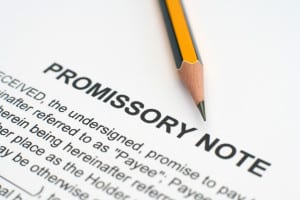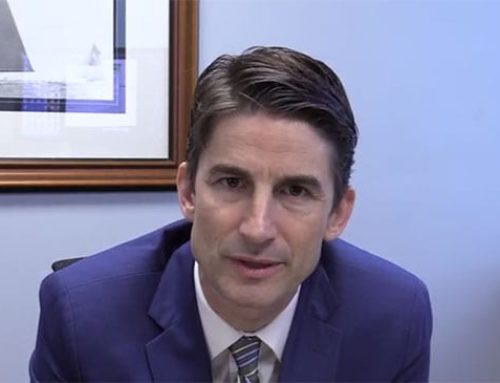A promissory note is a signed and legally binding document containing a written promise by the borrower to pay a stated sum to a specified person or the bearer at a specified date or on demand. Promissory notes are used for a wide variety of loans including but not limited to bank loans, commercial loans, student loans and real-estate loans. A promissory note can grant the loaner legal recourse in the event that the promissory note is not complied with in a timely manner, but there are certain considerations to make before legal recourse can be determined possible. Some of these considerations will be discussed along with how to collect on a promissory note once you have determined that you have the right to legal recourse.
Statute of Limitations
The statute of limitations in California for an action upon any contract, obligation, or liability founded upon an instrument of writing, an example being a promissory note, is four years from the breach.
When a promissory note is payable in installments, the cause of action on each installment accrues on the day following the date the installment is due. The statute of limitation, in this case, begins to run against the cause of action date for the recovery of any unpaid installments. If a promissory note contains an acceleration clause, the statute does not begin to run until the creditor legally declares the entire sum due. This can make a big difference in some cases as if a loan is set to be repaid in four years and the loan installments stop coming in half way, the creditor may have additional time under the statute of limitations to seek legal remedies for repayment of the due funds.
Different situations can cause different determinations of when the statute of limitations will begin to run. It is essential to consult with an attorney to determine if a promissory note is indeed collectible regardless of which side you represent in the matter.
Once you’ve determined that a promissory note is collectible, there are several steps to take in collecting your money promptly.
Organize All Related Documentation
It is important to ensure that all of your signed documentation is in place and that it has all been thoroughly reviewed. If you do not have signed, written proof of the agreement, you do not have a case.
Contact the Borrower
You must make a first attempt to contact the borrower through a written note requesting repayment. The letter should include a copy of the promissory note with a statement of the amount due. If this letter is ignored, you will need to move on to the next step.
Hire an Attorney
A promissory note is a legally binding document and you may be able to take legal recourse if your letter is ignored or the borrower is refusing to repay the promissory note. Your attorney will be able to determine if legal recourse is possible or reasonable given the circumstances, and advise you how to proceed.
Have Your Attorney Contact the Borrower
Securing legal representation and showing it by having the attorney handle further correspondence with the borrower will often heavily encourage the borrower to pay. However, if continued attorney correspondence is ignored or repayment rejected, you will need to move on to the next step.
File Suit Against the Borrower
The court in which you file will be determined by the amount owed and the circumstances surrounding your case. Your attorney should be able to properly advise you on which court to file in.
Enforce the Court’s Decision
After going to court, if the court files a judgment in your favor, the borrower will be forced to pay. The local sheriff’s department will usually be the first to try and enforce the judgment, but if they are unsuccessful, the court may garnish the borrower’s wages.
Collection Through a Third Party
Another option available is to collect through a third party like Amerinote Xchange. This means that the debt is sold to this collection agency or collection attorney for a smaller lump sum and the duty of collecting on the debt becomes their responsibility. Bulk sales of promissory note related debt is often performed by larger creditors to resolve a portion of the lost revenue quickly without having to deal with the hassle associated with collecting on all the debt. This is still possible for smaller creditors, but depending on your situation may or may not be worthwhile.
If you do decide to sell your note to a third party, contact more than one collection company and compare offers to ensure you get the most. You will not receive as much as is owed, and the amount is usually far less than what was due. However, depending on the circumstances, such as how much time you have to resolve the matter, this may be a worthwhile consideration.
Hiring a Reputable Attorney For Resolving Promissory Note Legal Issues
Are you having trouble collecting on a promissory note or do you feel that another company is trying to illegally collect on one from you? Hiring a reputable attorney to represent you in your case will grant you the best possible chance of success in matters involving promissory note agreements.
WB Law Group has years of experience resolving matters involving promissory notes and other legal agreements. For questions, or to schedule a consultation, contact us today at 559.431.4888 (Fresno) or 619.399.7700 (San Diego).



